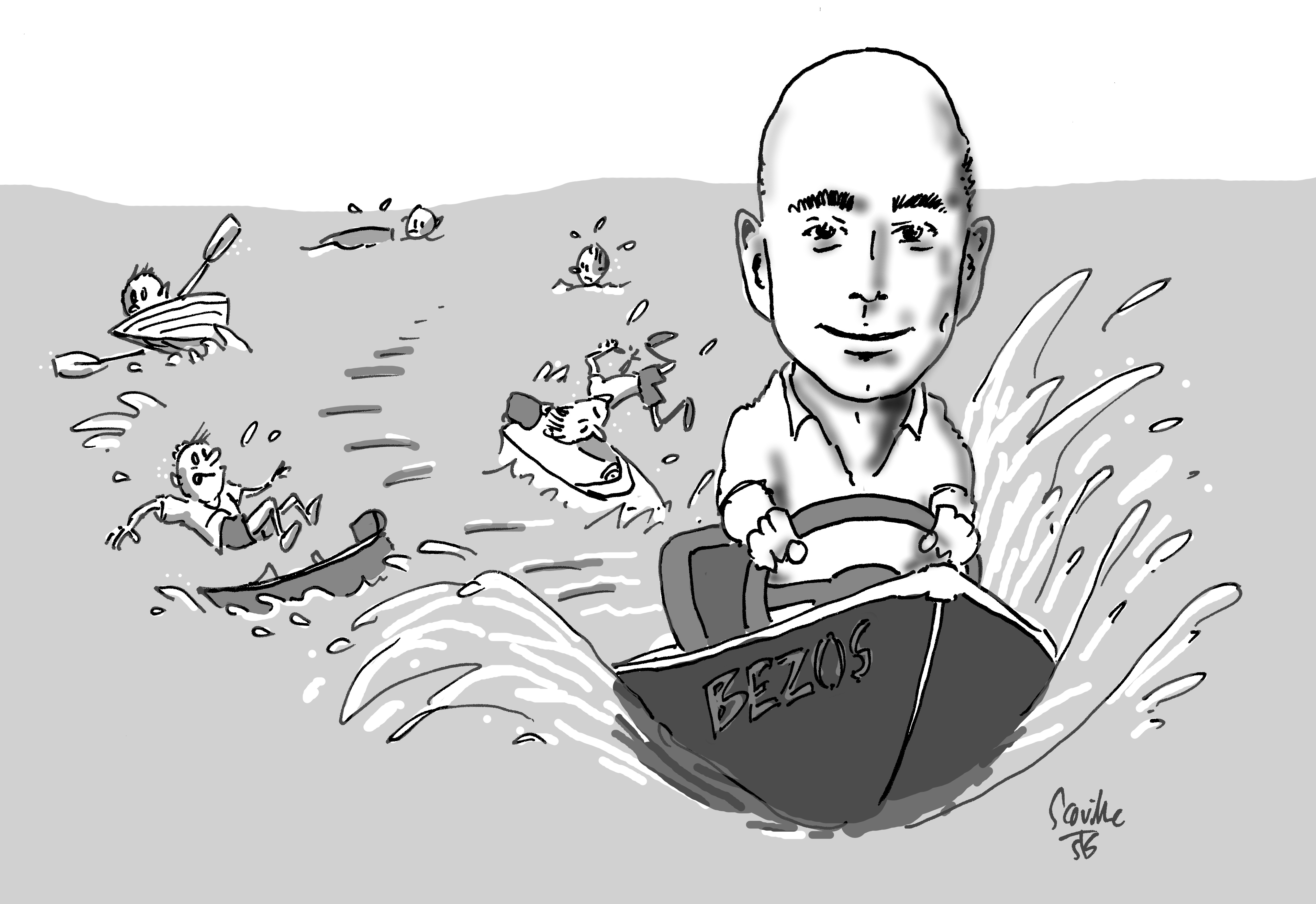For those who keep score — namely, the financial news media — last Thursday marked a milestone: For the first time in a long time, Bill Gates was no longer the richest person in the world. Instead, that distinction went to Jeff Bezos, the founder of Amazon.
This probably doesn’t come as any surprise to you. If your neighborhood is anything like mine, Amazon’s delivery trucks are a frequent sight, and their boxes seem to be propped up against everyone’s front door. The company now even has its own fleet of cargo planes. And, despite the company’s enormous size, with more than $130 billion in revenue, they continue to grow at approximately 25 percent per year. An astonishing rate for a company of their size.
It may seem like I’m stating the obvious. After all, this is not a new story. Why dwell on this particular milestone for Amazon?
If you are familiar with my approach to investing, you know I don’t recommend buying individual stocks, so I am not writing to recommend, or recommend against, Amazon, or any other stock.
I am pointing this out because it’s a good reminder of an important truth that is vitally important to your financial health: You should never put too much stock in Wall Street’s so-called experts. Here’s why:
Their interests are not the same as yours. Always remember that the big brand-name banks — those whose analysts appear frequently on TV to opine on the stock market — they are brokerage firms. That means that they make their money from trading commissions. For that reason, it is in their interest to get the public excited about, or depressed about, various stocks in order to generate trades. It doesn’t make any difference to them whether stocks go up or stocks go down; they just want them to move so that people feel motivated to take some action.
Investing is not a science. Those analysts on TV might have access to more information, and they might look like they know what they’re talking about in their $5,000 suits, but they still can’t tell the future. Until such time as Doc and his DeLorean appear in real life, this is just a fact. Indeed, if you look closely, you’ll see that oftentimes these so-called experts don’t even agree with each other. Right now, in fact, some firms are recommending that clients buy Amazon stock while others recommend selling. Clearly, there is no science to what they are doing.
They are acting out of fear. The investment legend Peter Lynch once wrote, “You don’t have to invest like an institution. If you invest like an institution, you’re doomed to perform like one, which in many cases isn’t very well.” What he was saying is that Wall Street professionals have a strong incentive to sound reasonable, and that means not being too different from the pack. Let’s look at Amazon again. If, three years ago, when Amazon’s share price was at $300, an analyst had predicted that it would get to $1,000 today, he would have sounded like a wild-eyed optimist. But that’s exactly what happened, and that would have been a very helpful recommendation.
I’m happy for Jeff Bezos. He has worked hard for his success. But don’t put too much stock in milestones like this. Instead, use them as a reminder that your financial plan should depend upon your individual situation — your needs, your age and stage — and should not be influenced by anything you hear from Wall Street.

